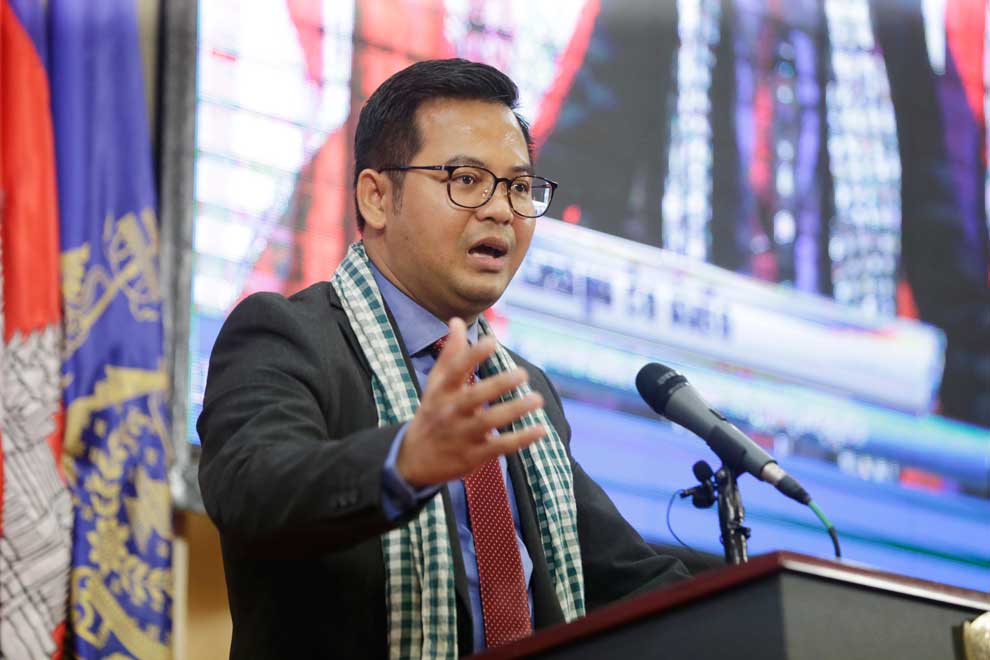
Justice ministry spokesman Chin Malin said a statement by two human rights groups on prison overcrowding was wrong. Heng Chivoan
Ministry of Justice spokesman Chin Malin on Sunday slammed two human rights organisations for issuing a baseless and untrue statement when claiming the government failed to keep a promise to alleviate prison overcrowding.
Amnesty International and the Cambodian League for the Promotion and Defence of Human Rights (Licadho) on Thursday said the government needs to make good on a promise to free nonviolent offenders.
“In May, Minister of Justice Koeut Rith announced a range of reforms to Cambodia’s judicial system. The promised reforms were intended to address the severe backlog of pending cases in Cambodia’s courts and the extreme overcrowding in its prisons through the expansion of alternatives to incarceration, including bail and suspended sentences, in addition to early and conditional release for current prisoners,” the joint statement said.
Citing Minister of Interior Sar Kheng, the organisations said: “In a separate announcement in May, the interior minister stated that prisoners may be released due to overcrowding and human rights concerns in Cambodia’s prisons. He gave an example that up to 10,000 prisoners could be released across the country.”
The organisations said they hoped that the government will disclose the number of prisoners released as part of this campaign after announcing that more than 3,500 cases had been cleared this month.
“Amnesty International and Licadho condemn the Cambodian authorities’ ongoing failure to decisively address the human rights crisis plaguing the country’s prisons,” the statement said.
The organisations called for immediate action from the government, in particular, to release prisoners accused of misdemeanours or non-violent offences and prisoners held on politically motivated grounds.
But Malin said the government never promised to release 10,000 prisoners as claimed by the organisations. He said the groups were quoting Sar Kheng out of context and were misleading the public.
“The justice ministry launched this campaign to clear a backlog of court cases. It adheres to speedy, rapid, just, fair and non-corrupt approaches and has clear goals, strategies, plans and implementation programmes,” he said.
Malin said once a backlog of cases is addressed, prison overcrowding will be looked at. But it will not be an immediate release as demanded by the organisations. “The campaign is not intended to release a certain number of prisoners in a defined period.”
He said prisoners who behaved well could have a chance to be pardoned or given reduced sentences.
Judges also have the discretion to decide if prisoners can be released on bail temporarily or have their sentences suspended.
Malin stressed that in May, Sar Kheng said prisoners may be released if they have served most of their sentence and their offences were minor.
But he added that when released, the burden of looking after them would fall on local officials and police and there is no plan yet in place.
“Let’s say, for example, that we reduce the sentences of 10,000 prisoners. [Upon release,] they won’t go to just one or two provinces, they’ll go everywhere.
“So, until that time, we will make a clear list of prisoners to be delegated to the police at all localities. We are also seeking other means to help handle those who are released. Nothing is set in stone yet, but we will keep on working at it,” Malin said.














